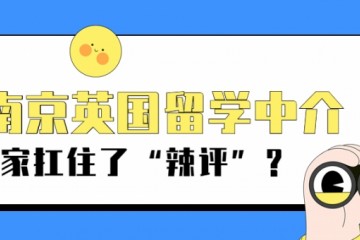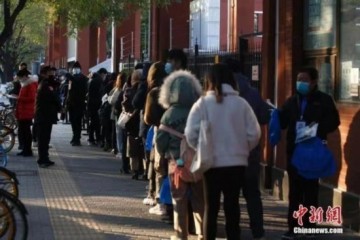
原标题:每日听力白话资料 | Missing Home 想家
Why does Keiko think that courses in American are difficult?
Is there anyone in America who will do the final dividing work?
Maybe some communities divide the trash in the end, but mostly they just bury it.
1.up to par 到达规范的;合格的;
例句:It's a constant struggle to try to keep them up to par.
要让他们合格,需求不断尽力。
2. adapt to 习惯;
例句:I do not think I'll ever adapt to this culture.
我恐怕永久也习惯不了这种文明。
3. think back 回想;回想;
例句:I keep thinking back to the day I arrived here.
我不断回想起刚到这儿那一天的情形。
4. catch up with 赶上,到达(规范、水相等);
例句:I have to work hard to catch up with the other students.
要想赶上其他同学,我得特别尽力才行。
5. in terms of 在…方面;从…视点看;依据…来说;
例句:The job is great in terms of salary, but it has its disadvantages.
就薪水而言,这个作业却是挺不错的,但也有一些晦气之处。
Todd: Hey, Keiko, you lived in The States for five years, right?
托德:嘿,惠子,你在美国日子了五年,对吗?
Keiko: Yep.
惠子:对。
Todd: When you were there, what did you miss about Japan — like what foods or TV shows or stuff like that?
托德:你在美国的时分牵挂日本吗?比方牵挂日本的食物或电视节目之类的?
Keiko: I did miss the food a lot — very healthy food, not oily, just simple, grilled fish, miso soup, simple rice, natto. I missed that a lot.
惠子:我十分牵挂日本的食物,牵挂那些不油腻,又简略的健康生物,比方烤鱼、味噌汤、米饭和纳豆等。我十分牵挂这些食物。
Todd: Now did you cook Japanese food in the states?
托德:你在美国有做日本食物吃吗?
Keiko: I lived with parents and my parents and my mom tried to cook as much but obviously it's hard to get those Japanese foods, ingredients in the states. It was pretty difficult at that time and it was also quite expensive, when you could get it.
惠子:在美国时我和爸爸妈妈日子在一起,我妈妈会尽量做日本食物吃,不过在美国很难买到日本的食材和调料。食材很难买,而能够找到的食材又很贵。
Todd: Right.
托德:没错。
Keiko: So, we didn't have it so often or everyday so I missed it.
惠子:所以咱们不是常常做日本菜,不是每天都吃,所以我才会牵挂。
Todd: Now what did you think of the Japanese restaurants in America? Were they up to par or? You can be honest.
托德:你觉得美国的日本餐厅怎么样?那些餐厅能到达规范吗?你能够实话实说。
Keiko: Yeah, it was kind of strange at that time because they came in a very un-Japanese looking dish, and you know, the taste was, it's very quite similar to authentic but it's not quite authentic.
惠子:其时我觉得十分古怪,尽管他们端上来的菜看上去不像日本菜,但是滋味和日本菜很像,不过不是那么正宗。
Todd: Right.
托德:没错。
Keiko: It was very close but still it wasn't the authentic Japanese.
惠子:滋味很挨近,不过不是正宗日本菜的滋味。
Todd: Now was there anything else you missed, like was there television shows or music or radio stations, things like that?
托德:除了食物你还有其他牵挂的东西吗,比方电视节目、音乐节目或是电台节目之类的?
Keiko: Actually, I didn't think about these things when I moved because I was kind of forced to be adapted to American culture, so I didn't have, almost I didn't have time to really think back,"Oh, I miss this, I miss that" but I wanted to catch up with my friends in American school, I tried to watch TV shows in the states and I tried to talk to my American friends about that, so no, not in terms of TV and radio.
惠子:实际上我在美国时不太想这些东西,由于我的状况有点像被逼去习惯美国文明,所以我彻底没有时刻回想,“哦,我牵挂这个,我牵挂那个”我没有这个时刻,我期望赶上在美国校园的同学,我尽力去看美国的电视节目,和美国朋友议论这些节目,所以我不太牵挂电视节目或电台节目。
Todd: OK. Now, actually, what grades were you in school? What level?
托德:好。其时你上几年岁?到达什么水平了?
Keiko: I moved to the states when I was 13, so the end of my junior high school first grade in Japan, so I moved into almost the beginning of the seventh grade in The States.
惠子:我搬去美国时是13岁,在日本念完了初中一年级,我去美国以后上七年级。
Todd: And then you graduated high school?
托德:你在美国待到高中结业?
Keiko: And then I graduated high school.
惠子:对,待到高中结业。
Todd: Whoa!
托德:哇!
Keiko: Yeah, it was almost six years.
惠子:对,差不多有6年的时刻。
Todd: Man, that must have been something.
托德:天哪,你必定阅历了许多。
Keiko: Yep.
惠子:对。
Todd: Now, American high schools are known to be a lot easier than Japanese high schools. Did you feel like it was a lot easier?
托德:一般人们以为美国的高中课程比日本的简略。你觉得美国的课程简略吗?
Keiko: Actually, it's a good question because I get that asked all the time but I don't think it's true because I think what's hard in Japan is I think the school in Japan is not so hard but you have to study for the entrance exam for university. That's more difficult, but in The States I found it difficult. I mean the school was actually quite difficult because we have, every day we have a homework from all the subjects. We have every chapter test every week from all the subjects and every homework and every little test you do in the states, it counts when you want to get into university so every day you have to work hard, whereas in Japan you don't even have to go to school. I mean you could just go to the certain amount of days to school and you can still graduate but then you just have to do really well on the entrance exam for university, so I think that's a big difference.
惠子:这是个不错的问题,总有人问我这个问题,我不这么以为,由于日本课业比较难的原因是,校园课程并不难,但是你要为预备大学入学考试而尽力学习。这很难,但是我发现美国的校园课程很难。美国的课程很难,由于每天一切课都会留作业,美国每周各科都会进行考试,美国一切的家庭作业和考试对考大学来说十分重要,所以每天都要尽力学习,但是在日本你不必每天都去校园。只需到达必定的出勤天数,也能够结业,条件是你在大学入学考试中要获得好成绩,所以我以为这是很大的不同。
Todd: Ok, thanks, thanks, Keiko.
托德:好,谢谢,谢谢你,惠子。
欢迎在留言区共享您的感悟。
责任编辑:

 筑梦起航,医路向前——中国新高教集团举办2024届毕业生赴中国人民解放
筑梦起航,医路向前——中国新高教集团举办2024届毕业生赴中国人民解放 南京英国留学中介筛选指南,谁家扛住了“辣评”?
南京英国留学中介筛选指南,谁家扛住了“辣评”? SOS ! 高考后申请美国本科来得及,但是这些事情你不能放过!
SOS ! 高考后申请美国本科来得及,但是这些事情你不能放过! 天津传媒学院无终艺术馆揭幕开馆
天津传媒学院无终艺术馆揭幕开馆 ACAA聚焦数字科技,为行业发展注入新活力
ACAA聚焦数字科技,为行业发展注入新活力 港澳台青年文化嘉年华在蓉举办
港澳台青年文化嘉年华在蓉举办 2023年度国考即将开考这些事项考生要了解
2023年度国考即将开考这些事项考生要了解 医教结合研讨会深度探讨孩子学习困难心理健康教育问题
医教结合研讨会深度探讨孩子学习困难心理健康教育问题